9 Indie Films That Remind Us Of Alfred Hitchcock
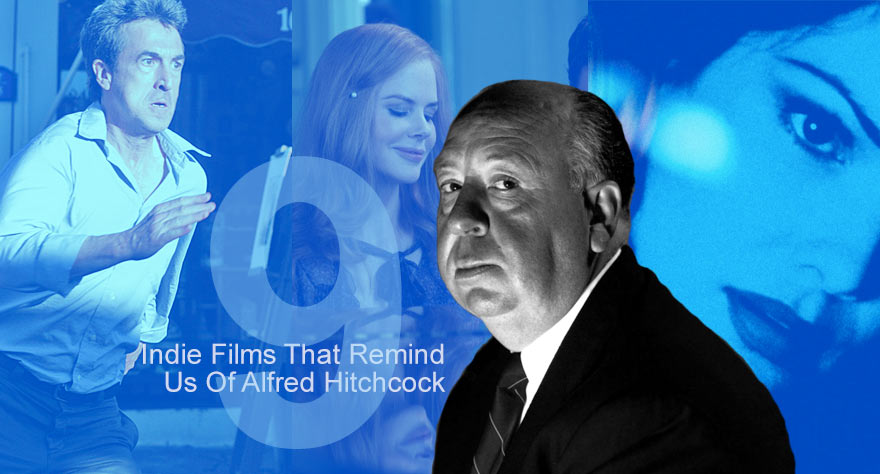
Earlier this week we celebrated Alfred Hitchcock’s birthday by ranking his films. Today we continue to celebrate the auteur’s work by listing indie films which remind us of his work. And because Hitchcock inspired so many filmmakers over the years with his innovative storytelling and crafty camera shots, we had a ton of films to choose from. The films below are the kind Hitch would have made if he were still live, or at the very least, films he would have enjoyed watching himself.
9 Indie Films That Remind Us Of Alfred Hitchcock
Tell No One
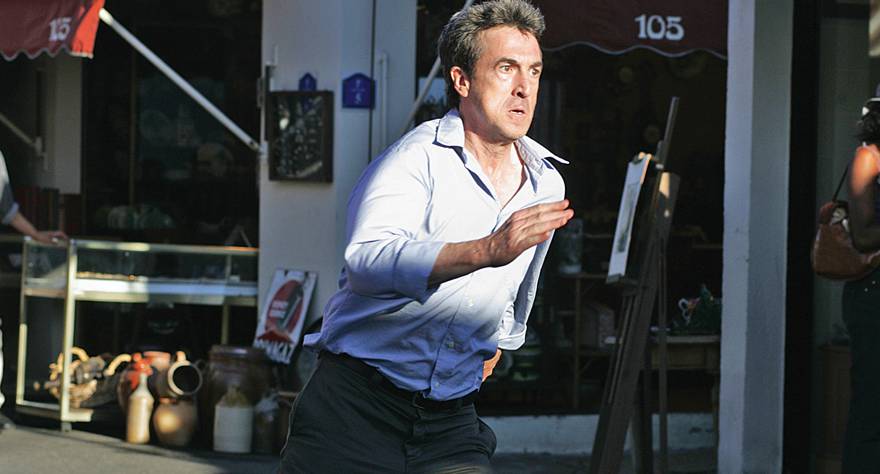
A married couple goes skinny dipping in a lake at night. After an argument, the woman swims to shore to clear her head. Suddenly, the man hears her scream and swims to shore to investigate only to be knocked unconscious by an off-screen culprit. Jump ahead eight years, and two bodies have mysteriously surfaced at the site where it’s believed the wife was murdered, reopening the case with the husband as the primary suspect. A classic cocktail of mystery, suspense and paranoia, Guillaume Canet’s Tell No One is a tense thriller with a knotty plot that harkens back to Hitch in its themes while satiating modern audiences with its brisk narrative momentum and elaborate action sequences. Francois Cluzet exudes intensity in the lead role, his frazzled charm making him a more volatile man-on-the-run than Cary Grant’s Roger O. Thornhill (North By Northwest) or Robert Donat’s Hannay (The 39 Steps), though he’s no less riveting. Like any good Hitchcock film (or any good mystery, for that matter), Tell No One always keeps you guessing and never fails to surprise, all while continuously building an emotional foundation that makes the shocker ending feel like a shotgun to the chest. [Bernard]
The Usual Suspects
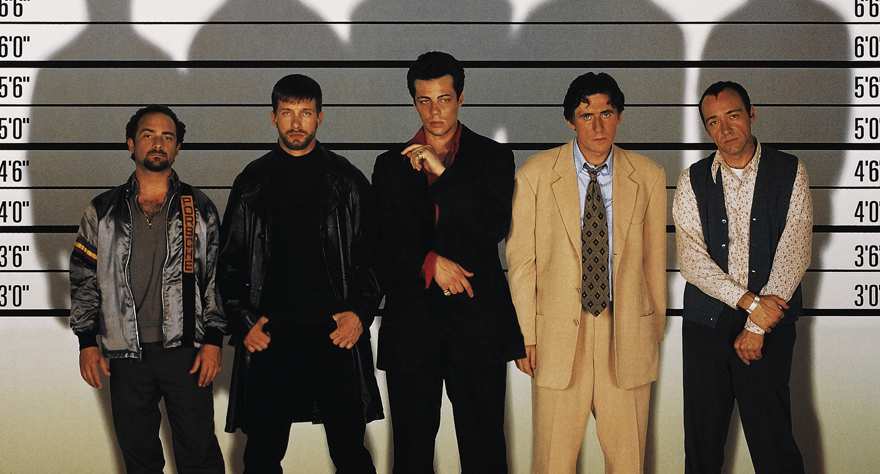
Alfred Hitchcock was masterful at creating mesmerizing characters who often danced on the edge of suspicion. Sometimes mysterious, sometimes charismatic, but always fascinating, these antagonists (to call them villains is a little too much) aren’t necessarily the kind to root for, but it isn’t a bad thing they get away with what they get away with for as long as they can. More than just foils, the greats include Madeleine Elster (Vertigo), Uncle Charlie (Shadow of a Doubt), and even Lars Thorwald (Rear Window) who, in Hitch’s hands, is captivating as little more than an object of observation. The modern indie film equivalent of these delicious baddies, a character Hitchcock would have had a blast with, is Verbal Kint, from Bryan Singer’s The Usual Suspects. What makes Kint, as played by Kevin Spacey, the archetypical Hitchcock antagonist is how ordinary he seems—the most usual of the usual suspects—until he weaves a hypnotic narrative tale about five villains, three heists, and one crime lord: Keyser Söze, a man whose reputation is so fearsome, he’s more than legendary, he’s mythological. Yet from Kint’s lips to the cops’ ears floats a story told with such subtle conviction and drenched in such rich detail, every last word is believable. Or is it? This is the Hitchcockian genius of him. Kint is known to be one of those five criminals and a man who simply cannot be trusted, but his feeble physicality is disarming. This allows his hypnotic storytelling acumen to take charge (Verbal is verbal, indeed). As Hitchcock would have wanted, Kint is a character the viewer should see coming, and yet fails to do so. As for the stunning reveal at the end, it’s Hitchcockian too, and one of the greats of movie history. [Michael]
Buried
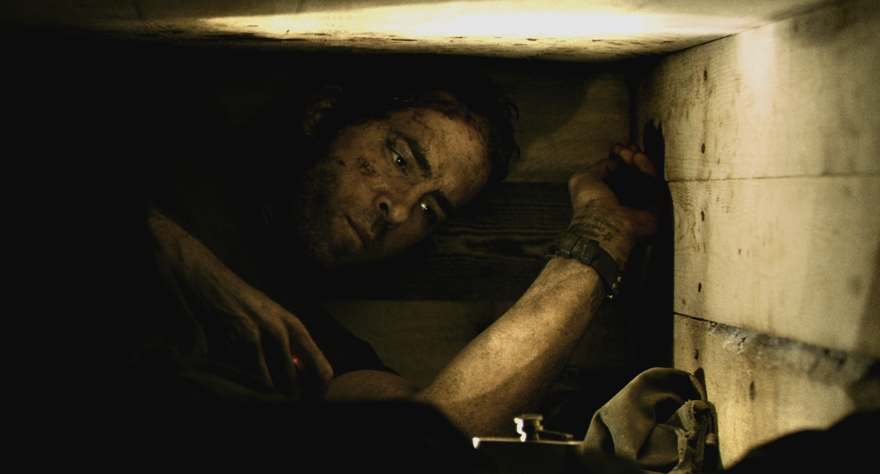
Hitch wasn’t just the master of suspense, but he was also an expert at single location filmmaking (Lifeboat, Rope, Rear Window). Rodrigo Cortés applied Hitchcockian attributes in his 2010 indie thriller Buried, where Ryan Reynolds (his best performance to date) finds himself trapped inside a coffin with only a lighter, a cell phone, and enough oxygen for 90 minutes. It’s a gripping race against the clock shot entirely in a claustrophobic setting. While it contains a super simple setup, the film is full of technical challenges. But Buried makes great use of constrained space, using careful camera framing and a sharpened sense of hearing to obtain a high level of suspense, all while opting not to show any shots outside the coffin. A less ambitious filmmaker would’ve added some flashbacks or cuts to a grieving spouse. But not Cortés. By leaving these shots out, the audience remains isolated with the character and the results are so suffocating they’ll leave you gasping for air. Hitchcock would have admired such an impressive feat. [Dustin]
Timecrimes
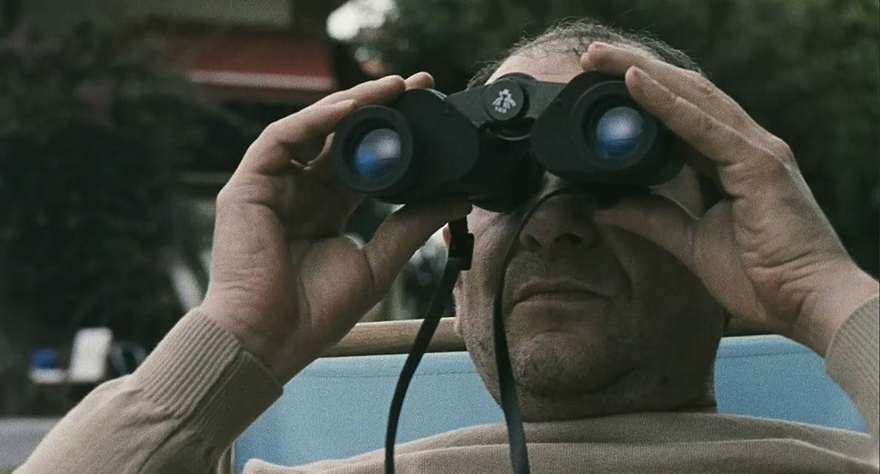
When one thinks of Hitchcock-inspired films, works of science fiction usually aren’t the first to come to mind. Nonetheless, Spanish filmmaker Nacho Vigalondo’s 2007 Timecrimes, proves that Hitch’s impact stretches to all corners of the contemporary cinematic realm and can even be found in the likes of foreign language time travel flicks. Like other modern films containing narratives dealing with the manipulation of time (such as Shane Carruth’s Primer and Bradley King’s recent Time Lapse), Timecrimes has a relatively complex plot that unfolds gradually and only fully presents itself to viewers during its third act. Vigalondo’s film follows a married ogler by the name of Héctor (Karra Elejalde). One quiet afternoon, after spotting a naked woman through a pair of binoculars, he wanders over to get a closer look; by the time he reaches the woman, she’s unconscious, slumped against a large rock, and suddenly Héctor is stabbed with a pair of scissors by a second, masked person. From there, the storyline only becomes more obscure though it certainly evolves in a fascinating and original manner. All originality aside, the Hitchcockian influence is surely present and can be found in qualities such as Timecrimes’ increasingly guilt-ridden protagonist and its utilization of voyeurism, in a similar vein as Hitch’s famous Rear Window and Psycho. [Eli]
Mulholland Drive

Many deem David Lynch a singular artist. Out of his influential oeuvre a whole new adjective was born; one that’s used to describe any picture cloaked in a mysterious, off-kilter atmosphere. So it’s interesting that this one decidedly unique filmmaker’s greatest film, the mesmerizing Mulholland Drive, borrows so directly the themes, aesthetics, and particles from Alfred Hitchcock’s most critically lauded film, Vertigo, in order to help create what’s arguably the most Lynchian atmosphere and story to date. Naomi Watts’ career-making role of a wide-eyed dreamer is an amalgamation of various Hitchcock “classic blonde” heroines, striking the biggest resemblance with Kim Novak from the 1958 classic. Not only is the 1950s aesthetic that provided the contemporary backdrop to Vertigo prevalent in the old-fashioned Hollywood look to Mulholland Drive, but it’s weaved into the thematics as well. Together with fear, manipulation, and spiraling madness, all of which permeate the tone of both pictures. Lynch contorted the very same type of suspense that Hitch mastered in his day; using audience’s’ imaginations and subconscious as a plaything to create unforgettable and influential art. [Nik]
Match Point
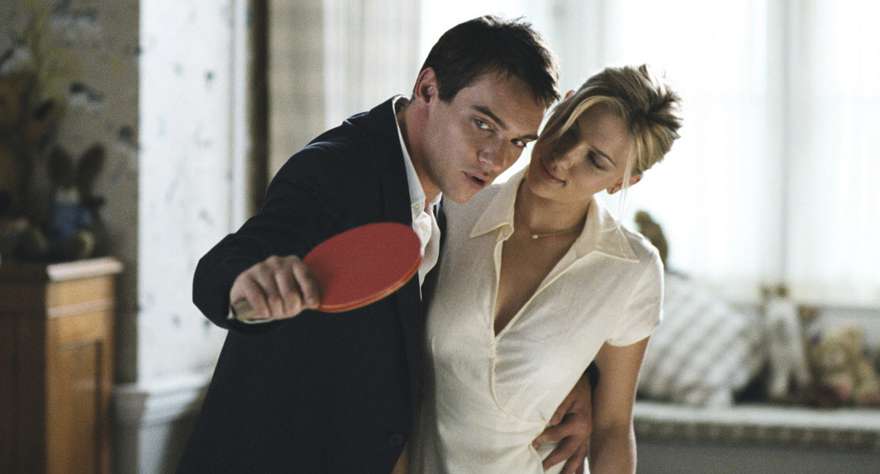
While Woody Allen has continued to churn out a movie a year for most of his career, his recent films seem to have narrowed in scope, losing some of the sharp-witted satire that marked many of his earlier films. One film that has poked through this listless drought is Match Point, a flick that saw Allen test the waters of the thriller genre, and most importantly, play homage to the godfather of suspense himself. Allen has never been afraid to wear any particular film’s influences on his sleeve, and Match Point is no exception. The premise alone is rife with nods to Hitchcock’s Strangers On A Train, a film that centers on a tennis star, murder, and, most importantly, chance, which in Match Point is redubbed as luck. The nods don’t stop there. Jonathan Rhys Meyers plays Chris, a handsome, talented charmer with sociopathic tendencies, much in the style of classic Hitchcock villains: men who can literally get away with murder. Most importantly of all, is Scarlett Johansson, the beautiful blonde temptress, the source of all this lust, the carrier of the unwanted child, the catalysis of everything. To put the sexual politics of Allen’s work in question is to be a conscious and critical filmgoer (which we all should be), but while off-putting and dated, the film stays true to its influences, for better or worse. [Gary]
Chuck & Buck
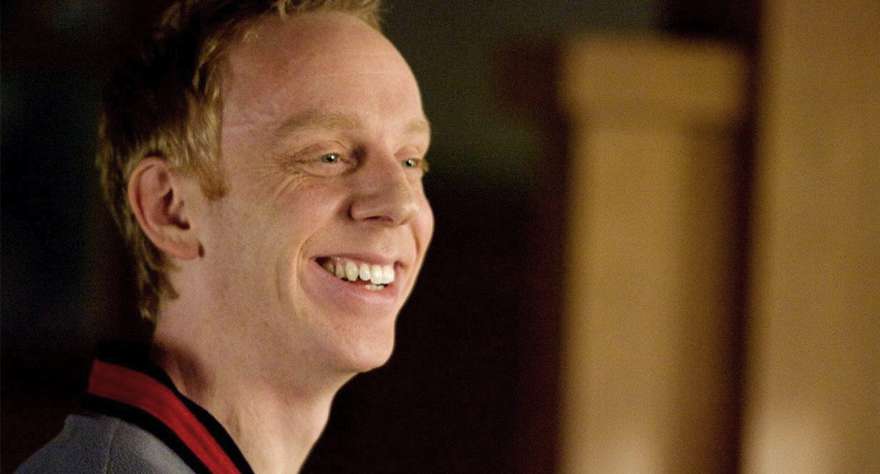
While maybe not an obvious selection for a Hitchcock-inspired film, Miguel Arteta and Mike White’s thoughtfully constructed and hilarious micro-budgeted black comedy, Chuck & Buck, owes a lot to the popular works of Hitchcock including Psycho and Rear Window. Chuck & Buck follows the reunion of two childhood friends, writer Mike White in the role of Buck and filmmaker Chris Weitz (About a Boy, American Pie) plays Chuck who now goes by Charlie. After Buck’s mother passes away, the two friends awkwardly reconnect at her funeral which is followed by Buck following Chuck (and his wife) to Los Angeles. Buck tries desperately to fit himself into Chuck’s life as his obsession becomes increasingly more sexual and invasive. Instead of taking the path of someone like Brian De Palma (whose fantastic Blow Out I nearly chose for this list) where the Hitchcock influence is more authentic and direct, Arteta and White twist the voyeuristic themes and Norman Bates-like qualities of Buck to a wildly different effect. It plays up these qualities pushing them to levels of uncomfortable and sometime gut-busting laughter as the film brilliantly satirizes the irrational homophobic fear that can exist in straight men. [Ryan]
Stoker
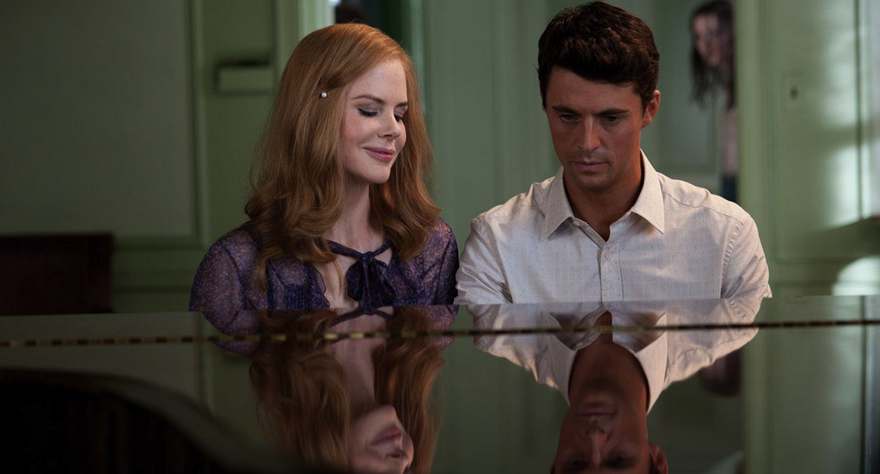
The screenplay of Stoker is what most recalls Hitchcock’s work. Revolving around a teenage girl (Mia Wasikowska) and her prickly mother (Nicole Kidman) mourning the loss of a father and husband as a mysterious relative (Matthew Goode) slowly moves into the picture, the plot draws comparisons to Shadow of a Doubt, but Director Park Chan-Wook makes it his own uniquely twisted beast. While the story pays clear homage in the structuring of gradually built dread and distrust, Park’s offbeat and richly sensual direction marks the singular vision of a true auteur. Through detailed mise-en-scène and slick, haunting visuals, we are steered through an unsettling vision of sexual awakening and hereditary depravity. The film crawls under one’s skin as it pries open narrative and thematic doors initially closed tightly. The film resembles Marnie in its Freudian hang-ups and Frenzy in its relative grittiness, and although it’s far bleaker and bloodier than Hitch had the ability to be in his time, something tells me that fans of his distinct brand of psychological terror would be tickled by this one-of-a-kind experience. [Byron]
Misery
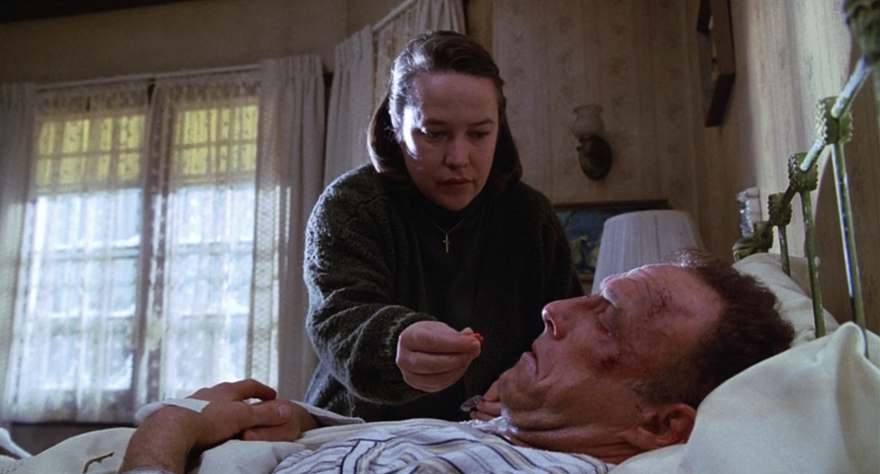
It feels almost as though any horror, thriller, or psychological suspense film we could possibly think of and include on this list would feel obvious in some way. There isn’t a great movie out there among these genres that doesn’t herald back to something Hitchcock either invented or did so well it merited emulation. But in terms of Hitchcock signature moves, Rob Reiner’s 1990 Misery uses all the very best. Single-location by way of a secluded country house. Slow zooms into character’s faces as anxiety builds giving a sense of claustrophobia. And of course, a main character with alarmingly obsessive tendencies. Hitch knew that love could be a far scarier emotion than hate. Vertigo taught us the price of obsessive love, and Misery’s Annie Wilkes is a fan whose love of a book series is more than a little unbridled. Rear Window established that a character immobilized and trapped in a small space is more horrifying than any dark castle, and Paul Sheldon learns just how harrowing four walls are when your ankles are smashed to bits. Those who appreciate the simmering, confined, tension-filled thrillers Hitchcock made his name on, will find themselves satisfied by Misery. [Ananda]
